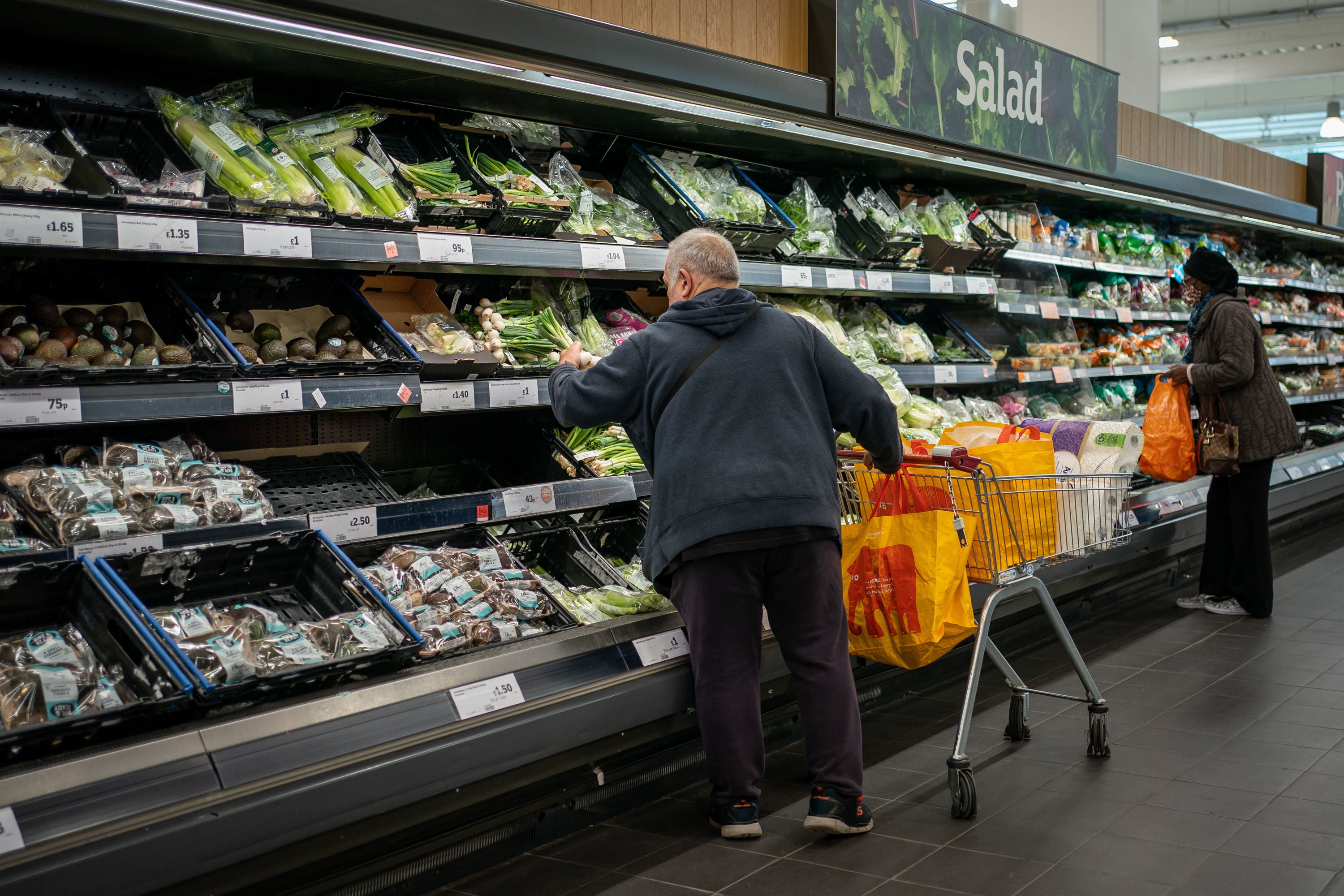Anger as government plans to sell gene-edited ‘Frankenfood’ food unlabelled
Charities say the bill pushes aside the ‘real issues’ facing the UK in favour of promoting ‘unpopular technologies’

Your support helps us to tell the story
From reproductive rights to climate change to Big Tech, The Independent is on the ground when the story is developing. Whether it's investigating the financials of Elon Musk's pro-Trump PAC or producing our latest documentary, 'The A Word', which shines a light on the American women fighting for reproductive rights, we know how important it is to parse out the facts from the messaging.
At such a critical moment in US history, we need reporters on the ground. Your donation allows us to keep sending journalists to speak to both sides of the story.
The Independent is trusted by Americans across the entire political spectrum. And unlike many other quality news outlets, we choose not to lock Americans out of our reporting and analysis with paywalls. We believe quality journalism should be available to everyone, paid for by those who can afford it.
Your support makes all the difference.Legislation to push through the development and marketing of “gene-edited” crops is set to be introduced in a new bill this week, despite opposition.
The plans will allow vendors to sell gene-altered crops and livestock unlabelled in the face of government polling which shows most consumers want labels on gene-edited products.
A survey found that 88 per cent of Brits are opposed to the rule change to permit the sale of so-called “Frankenfood”. Shoppers have raised concerns that without proper labelling, consumers won’t know what they’re putting in their bodies.
Gene editing (GE) changes the traits of a species of plant or animal faster and more precisely than traditional selective breeding which has been used for centuries to create stronger and healthier crops and livestock.
The government claimed the process has a number of benefits: it helps improve food security, as it produces crops that are more nutritious; it could improve climate resilience as there would be less need for pesticides and fertilisers that damage wildlife; livestock used would be more resistant to disease and require fewer antibiotics.
It could also pave the way for rolling out tomato plants that are mildew-resistant to cut fungicide use or are fortified with vitamin D, developing wheat that can cope with higher temperatures, and breeding chickens resistant to bird flu.
Officials and scientists draw a distinction between gene editing, which involves the manipulation of genes within a single species or genus, and genetic modification (GM), in which DNA from one species is introduced to another.
But following an EU ruling in 2018, it is regulated in the same stringent way as GM organisms, a rule the government is now unpicking since leaving the bloc.
Public outcry has been joined by criticism from charities which say the bill pushes aside the “real issues” facing the UK in favour of promoting “unpopular technologies”.
“We are deeply disappointed to see the government prioritising unpopular technologies rather than focusing on the real issues – unhealthy diets, a lack of crop diversity, farm animal overcrowding and the steep decline in beneficial insects who can eat pests,” the Soil Association’s policy director Jo Lewis said.
“Instead of trying to change the DNA of highly stressed animals and monoculture crops to make them temporarily immune to disease, we should be investing in solutions that deal with the cause of disease and pests in the first place.”
She said a shift to healthy and sustainable diets instead was the most evidence-based solution for the climate crisis and our health.
The Genetic Technology (Precision Breeding) Bill will create a new category for gene-edited organisms to regulate them separately from GM organisms.
It will introduce new notification systems for research and marketing, and ensure information collected on precision-bred organisms is published on a public register.
The new legislation aims to speed up the development and commercialisation of crops and livestock bred with genetic editing, although the government says it is taking a step-by-step approach by creating rules for plants first.
No changes will be made to the regulation of animals under the GM regime until measures are developed to safeguard animal welfare, the Department for Environment, Food and Rural Affairs (Defra) said.
It will also allow the import of GE foods from other countries if they meet the same regulations.
The rule changes apply to England, so GE foods can be developed and produced by English scientists and farmers, but could also be sold in Scotland and Wales.
The government has already allowed field trials in England of gene-edited crops without having to go through a licensing process costing researchers £5,000 to £10,000, although scientists have to inform Defra of their tests.
“Outside the EU we are free to follow the science. These precision technologies allow us to speed up the breeding of plants that have natural resistance to diseases and better use of soil nutrients so we can have higher yields with fewer pesticides and fertilisers,” environment secretary George Eustice said “The UK has some incredible academic centres of excellence and they are poised to lead the way.”
With additional reporting from PA
Join our commenting forum
Join thought-provoking conversations, follow other Independent readers and see their replies
Comments